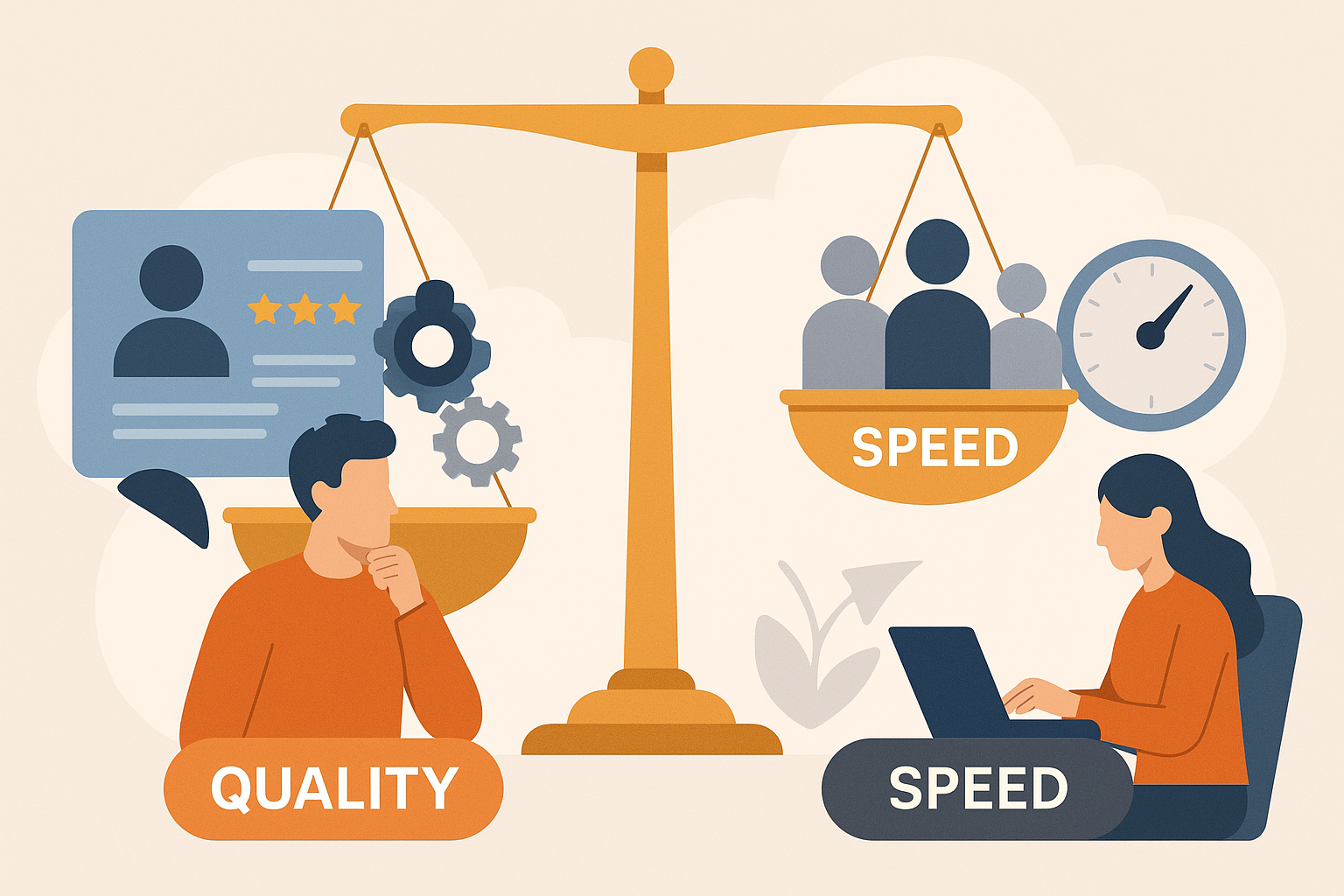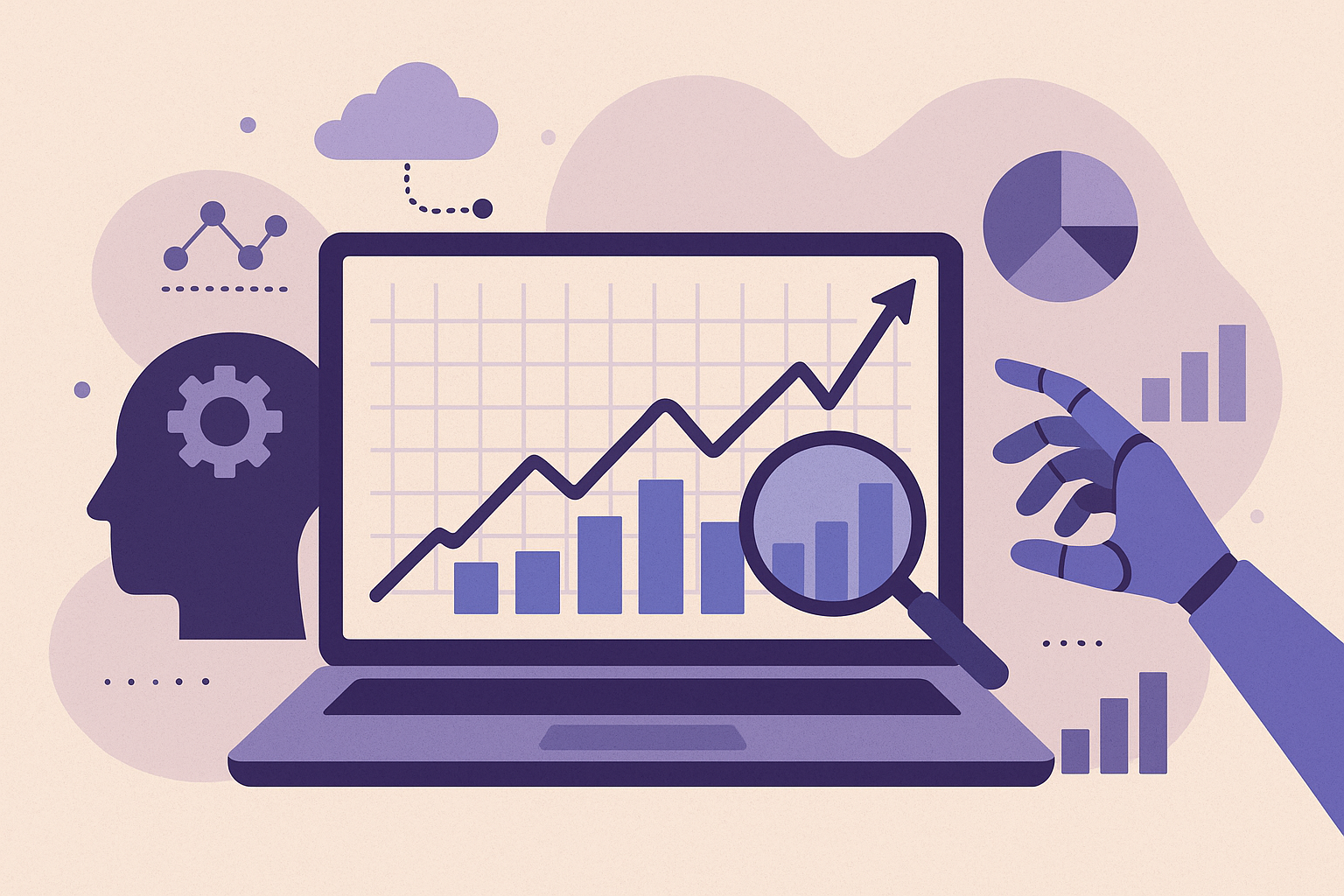What's in this article?
Artificial Intelligence (AI) is rapidly redefining modern sales strategies, bringing unprecedented efficiencies and insights into sales operations. As businesses strive to stay competitive, leveraging AI for sales performance analytics is not just an option but a necessity. This article will delve into the transformative potential of AI in sales, particularly highlighting its impact on sales performance analytics, and guide you on integrating AI into your sales strategies effectively.
The Power of AI in Sales Performance Analytics
AI’s ability to analyze vast quantities of sales data with precision is a game-changer for sales teams. By employing AI-driven sales performance analytics, businesses can identify patterns, predict sales outcomes, and streamline operations to enhance results. One of the most powerful applications is predictive lead scoring, which uses AI to evaluate potential leads and prioritize them based on their likelihood to convert. This not only accelerates the sales process but ensures resources are focused on the most promising leads, enhancing overall sales efficiency.
Explore Predictive Lead Scoring →
Predictive lead scoring offers several advantages. It provides a data-driven approach to lead management, which can significantly improve conversion rates. By applying machine learning algorithms to historical sales data, sales teams can forecast which leads are more likely to close, thus optimizing workforce allocation and reducing wasted efforts.
How AI Enhances Decision-Making in Sales
AI transcends traditional data analytics by offering actionable insights that can pivot a company’s sales strategies toward success. For instance, ProPair’s AI platform empowers sales teams by translating data into revenue-driving actions, making the decision-making process both insightful and pragmatic. Real-world applications have shown that AI enhances decision-making capabilities, allowing sales managers to tailor strategies that align with evolving market demands.
Consider a case where a sales organization integrated AI into its CRM system. By leveraging AI, the company was able to identify key performance indicators that were previously overlooked. This led to revamped sales tactics, improved lead conversion rates, and a significant increase in ROI. Such examples underscore AI’s potential to fine-tune sales strategies, driving both short-term wins and sustainable growth.
Implementing AI-Driven Sales Strategies
Adopting AI-driven sales strategies involves several best practices. First, it’s crucial to integrate AI tools that complement existing systems. A comprehensive review of available AI solutions, such as those offered by ProPair, can guide businesses in choosing tools that not only fit their current frameworks but also support long-term goals.
How to Prepare Your Data for AI Integration →
The journey to successful AI adoption begins with understanding the organization’s specific needs and the challenges of current sales processes. Common hurdles like employee resistance and integration difficulties can be minimized by ensuring thorough training and fostering an organizational culture open to technological innovation. Companies should consider starting with pilot programs to manage risk and scale successful strategies company-wide.
Maximizing ROI Through AI in Sales
AI’s role in boosting sales performance is directly linked to its capacity to maximize return on investment (ROI). By streamlining lead conversion processes and enhancing client retention, AI tools help sales teams work smarter, not harder. For instance, AI-augmented customer interactions allow for personalized sales tactics, demonstrating appreciable impacts on sales figures.
Statistically, sales organizations using AI have witnessed up to a 20% increase in sales productivity, as AI assists in identifying underperforming areas and uncovering growth opportunities. Furthermore, AI facilitates efficient resource allocation, ensuring efforts align with high-value sales activities that drive profitability.
FAQ
What’s the initial investment for AI tools in sales?
Investments can vary significantly based on the scope and scale of deployment. However, initial costs might include software acquisition, training, and integration expenditures.
How to measure the impact of AI on sales performance?
Sales performance can be measured by analyzing key metrics such as conversion rates, sales cycle time, and overall ROI improvement post-AI integration.
What support is available for AI adoption in sales?
Many AI vendors, including ProPair, offer comprehensive support packages that include onboarding, training, and continuous technical support to ensure successful implementation.
A Logical Next Step
Invest in AI-driven sales solutions to transform your sales strategy. Experience the benefits of enhanced data analytics and decision-making processes by scheduling a demo with ProPair today. Leverage our solutions to stay competitive in this evolving sales landscape.



